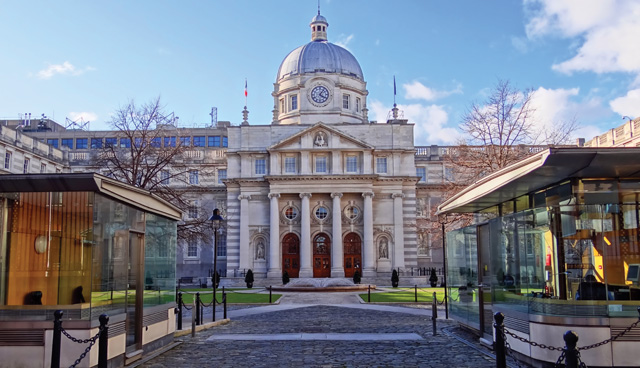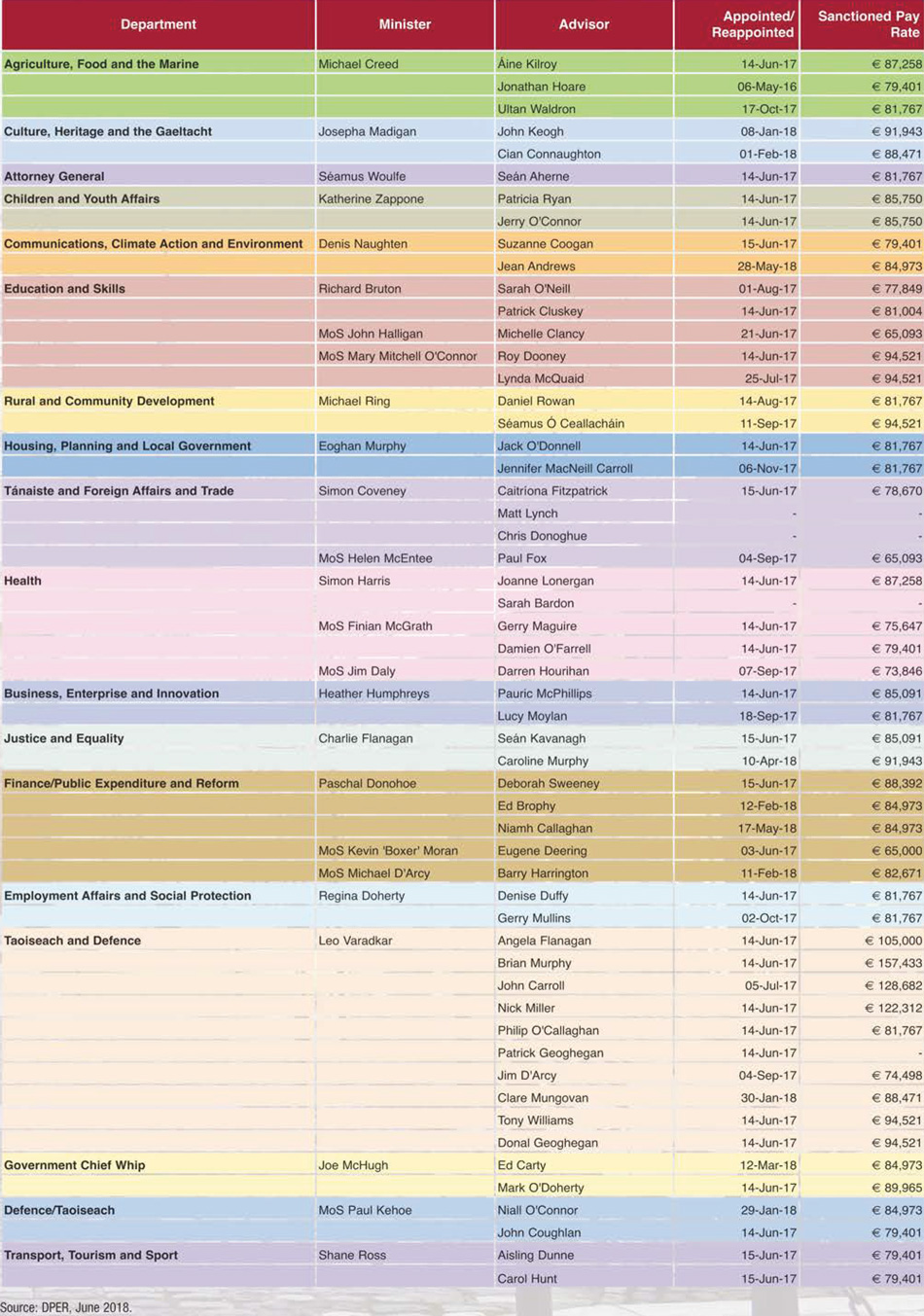Fourth estate: Poachers turned game keepers


Ministerial ‘special advisers’, formerly referred to as ‘programme managers’, are generally utilised as administrative assistants to provide political coordination in pursuit of the Government’s objectives. In recent months, several high-profile journalists have migrated into such roles. eolas reports.
As of June 2018, there were 54 special advisers (20 of whom are women) across the 16 departments of state in the Government (Paschal Donohoe merged Public Expenditure and Reform (DPER) back into Finance), as well as the Office of the Attorney General and the Minister of State at the Department of the Taoiseach (Government Chief Whip).
The appointment of special advisers requires the approval of Government in accordance with section 11 of the Public Service Management Act, 1997. External Civil Service appointments require the sanction of the Taoiseach and application must be made directly to the Taoiseach’s Private Office. Those appointed to such postings are regarded as “temporary unestablished civil servants”.
In the 32nd Dáil, only government ministers and ministers of state who regularly attend Cabinet will have special advisers appointed. By way of remuneration, ministerial special advisers are placed on the Principal Officer (standard) PPC scale (€97,401-€82,587-€85,750-€88,936-€91,624). However, secretaries general have delegated sanction to approve any increment on the Principal Officer scale. Where it is proposed to appoint a salary, which exceeds the maximum on this scale, secretaries general must seek sanction from DPER.
Special advisers to ministers of state are placed on the Assistant Principal Officer (standard) PPC scale (€65,000-€66,040-€68,262-€70,479-€71,758). Secretaries general have the delegated sanction to appoint to any increment on the Assistant Principal standard scale. DPER must be notified of the rate to be paid in all cases.
Restrictions on salary scale do not apply to special advisers to either the Taoiseach or the Tánaiste
Currently, the advisers are paid between €65,000 (Eugene Deering) and €157,433 (Brian Murphy) and the combined annual salary totals more than €4,400,000 (some salary figures are omitted). This total does not include personal assistants, personal secretaries or civilian drivers.
There are 10 special advisers in the Taoiseach’s Department with a total wage bill of €947,205, with four of these advisers paid a salary exceeding €100,000.
Over the last two years, a significant portion of the special adviser cohort has emerged from Ireland’s journalistic ranks. Some prominent examples include:
Carol Hunt: In September 2016, Carol Hunt, a journalist with 12 years’ experience, including as a columnist with the Sunday Independent accepted a role as Media Adviser to Minister for Transport, Tourism and Sport Shane Ross TD.
Lynda McQuaid: In July 2017, Lynda McQuaid, former Director of Content at TV3, undertook a new role as Press Adviser to Junior Minister Mary Mitchell O’Connor.
Chris Donoghue: Until November 2017, Chris Donoghue, the Tánaiste’s Special Adviser and Communications Director was previously employed as Political Editor of the Communicorp group of radio stations and, prior to that, as a presenter on Newstalk.
John Keogh: In January 2018, John Keogh, Media Adviser to the Minister for Culture, Heritage and the Gaeltacht, Josepha Madigan TD, was Director of News at Newstalk for 13 years, Managing Editor of the Network news for eight years and a senior producer at Sky News.
Niall O’Connor: Also in January 2018, Niall O’Connor, formerly a Political Correspondent with Independent News and Media accepted a role as Media Adviser to Paul Kehoe TD, Minister of State with responsibility for Defence.
Ed Carty: In March 2018, Ed Carty left his role as Deputy Ireland Editor with Press Association to work as Press Adviser to Government Chief Whip Joe McHugh TD.
Caroline Murphy: In April 2018, erstwhile RTÉ producer and presenter of the ‘It says in the papers’ feature of Morning Ireland Caroline Murphy accepted a role as Press Adviser to Justice Minister Charlie Flanagan.
Sarah Bardon: In August 2018, Sarah Bardon, political reporter with the Irish Times, left her role to become Press Adviser to Health Minister Simon Harris.






